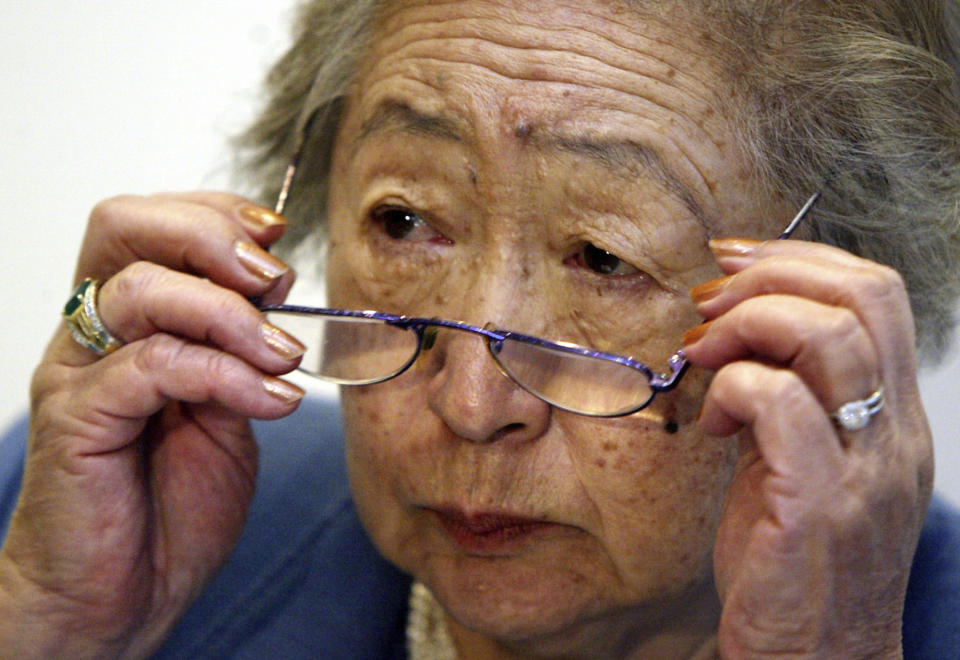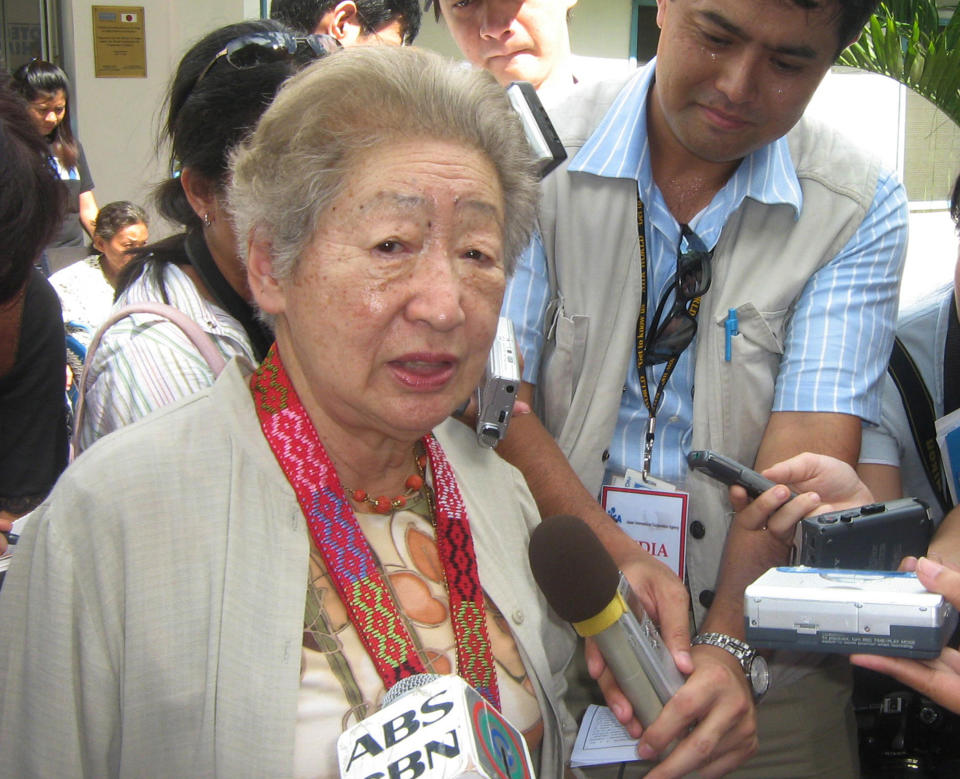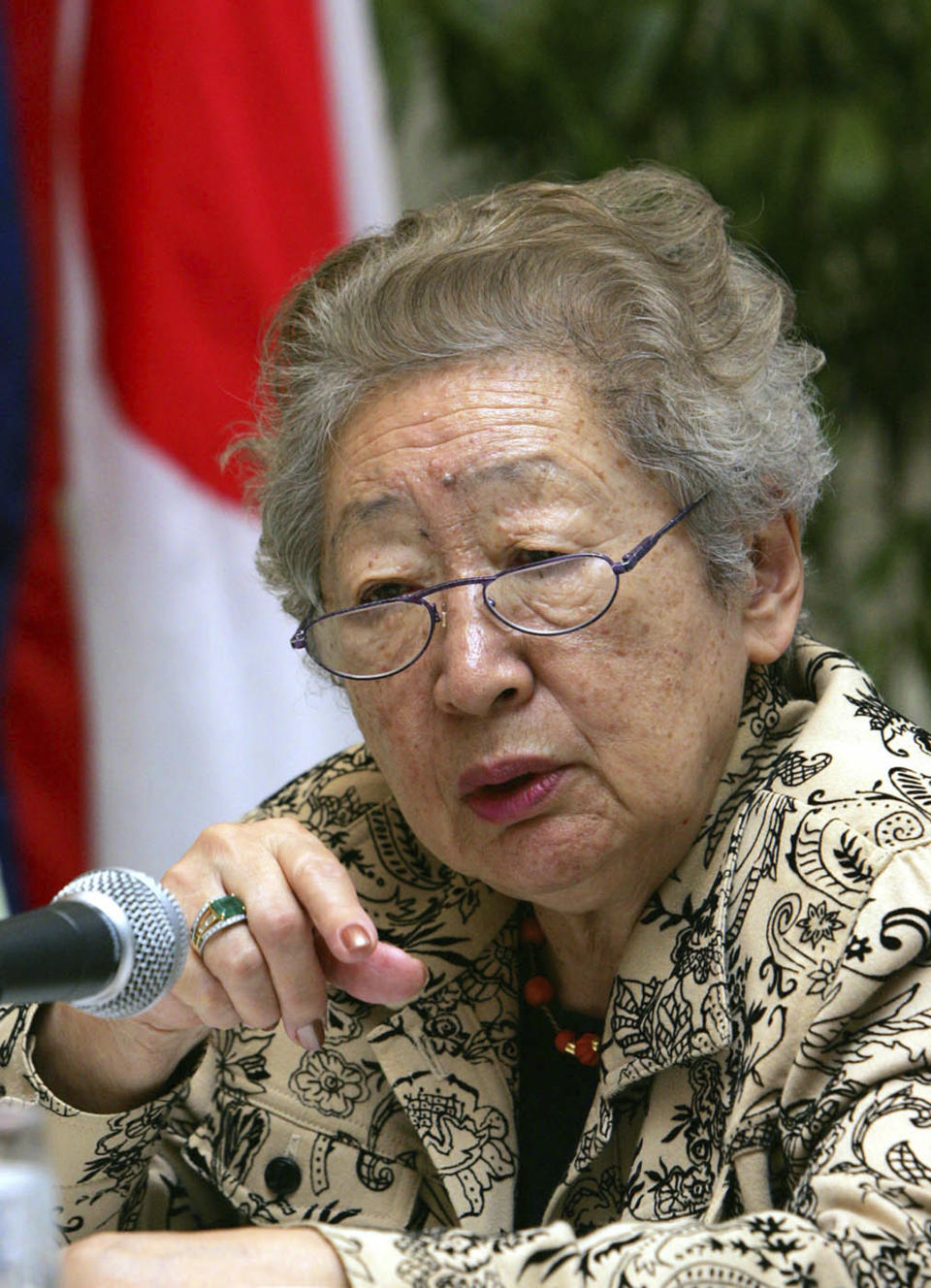Former top UN refugee official Sadako Ogata dies at 92
TOKYO (AP) — Sadako Ogata, who led the U.N. refugee agency for a decade and became one of the first Japanese to hold a top job at an international organization, has died. She was 92.
The government-funded Japan International Cooperation Agency, where she last served, said Tuesday that Ogata died on Oct. 22, but the cause was not disclosed.
Ogata, born on Sept. 16, 1927, was the great-granddaughter of former Prime Minister Tsuyoshi Inukai, who was assassinated by navy officers in 1932 as he tried to stop Japan's military aggression in China, and the granddaughter of former foreign minister Kenkichi Yoshizawa. She spent much of her childhood in China and the U.S., where she earned a doctoral degree in political science from the University of California, Berkeley, and a master's degree at Georgetown University.
She chose, however, to become an academic and diplomat instead of following her family into politics. After teaching at Tokyo's Sophia University, Ogata in 1979 became the first Japanese woman to represent her country at the United Nations. She served on the U.N. Human Rights Commission from 1982 to 1985 and then as U.N. high commissioner for refugees from 1991 to 2000.
A person with strong principles, she visited more than 40 countries as high commissioner, often clad in a bulletproof jacket and helmet, to personally witness people's plight. She made numerous visits to refugee camps for Kurdish people who fled Iraq after the Gulf War.
"I have to be on the ground and see how people flee or how those displaced suffer even after returning home. Without seeing the situation, I cannot give instructions to my staff," Ogata said in a 1989 interview with Japanese public broadcaster NHK.
U.N. Secretary-General Antonio Guterres called Ogata a "role model for people across the world" who "left a unique legacy and imprint on the U.N. refugee agency."
"Sadako Ogata set the standard for helping refugees: principled, compassionate, effective," he said. "She was fearless in her advocacy for people, humanitarian action and political solutions."
Guterres, who became the U.N. refugee chief several years after Ogata said he was "grateful" to have known her "as both colleague and friend."
"As the first woman to serve as high commissioner for refugees, she was a pioneer in highlighting not only the impact of violence on women but the imperative of women's involvement in solutions," Guterres said.
Current High Commissioner Filippo Grandi said: "Mrs. Ogata was a visionary leader who steered UNHCR through one of the most momentous decades in its history, transforming the lives of millions of refugees and others devastated by war, ethnic cleansing and genocide, and helping redefine humanitarian action in a fast-evolving geopolitical landscape,"
"She was a committed internationalist and a friend to the United Nations throughout her life," Grandi said in a statement.
Ogata dedicated much of her career to refugee problems and trying to make the world a better place to live, and wrote books addressing refugee issues.
Outside her career, Ogata married a Japanese central banker and raised a son and daughter. She remained an avid tennis player throughout her life, continuing to play until a few years ago.
Ogata served as president of the Japan International Cooperation Agency from 2003 to 2012.
JICA President Shinichi Kitaoka described Ogata as "a person who represented Japan with tremendous contributions and achievements for peace in international society." He said in a statement that Ogata was a leader with both strength and kindness.
"Facing the news of her passing away, I'm in deep sorrow," Kitaoka said.
___
Follow Mari Yamaguchi on Twitter at https://twitter.com/mariyamaguchi



